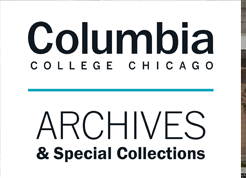
Date of Award
4-2014
Degree Type
Thesis
Degree Name
Master of Art in Dance/Movement Therapy and Counseling (MA)
Department
Creative Arts Therapies
First Advisor
Kim Rothwell
Keywords
Adoptive parents, Dance therapy, Movement therapy
Abstract
The purpose of this study was to identify adoptive parents’ predominant, post-adoption needs through a phenomenological needs-assessment. While the initial lens of attachment theory was utilized, the phenomenological methodology allowed for a variety of needs and experiences to emerge. The results served as a basis for exploring how dance/movement therapy (DMT) may effectively play a role in adoption services. The participants of the study included five adoptive parents and two adoption counselors. The data were collected through semi-structured, in-depth interviews and analyzed using Anderson’s intuitive inquiry, including a resonance panel of individuals who had experience with adoption, personally or professionally.
Findings suggested that mother/child bonding was a central focus for the participants, and that secure attachments were attained without outside intervention. The creation of these secure attachments, despite some challenges and the absence of biological processes, reflected the resilience of the families and the power of parent child connection. Other needs came forward because of the foundation of these secure attachments. These needs included validation of parenting abilities, addressing child’s identity concerns, finding community support, integrating adopted children into family units, maintaining maternal health, and calming the child at different developmental stages. Implications are explored, suggesting that DMT may play an effective role in adoption support in various ways. These include allowing space and techniques for focusing on parent-child connection, facilitating identity exploration, and increasing connection between biological and adopted family members, among others. This study suggests that further research, including program development, is warranted to explore the variety of ways DMT can support adoptive families.
Creative Commons License

This work is licensed under a Creative Commons Attribution-NonCommercial-No Derivative Works 4.0 International License.
Recommended Citation
Glaser, Eva C., "Creating Family: A Phenomenological Needs-Assessment of Adoptive Parents for Implications in Dance/Movement Therapy" (2014). Creative Arts Therapies Theses. 41.
https://digitalcommons.colum.edu/theses_dmt/41

